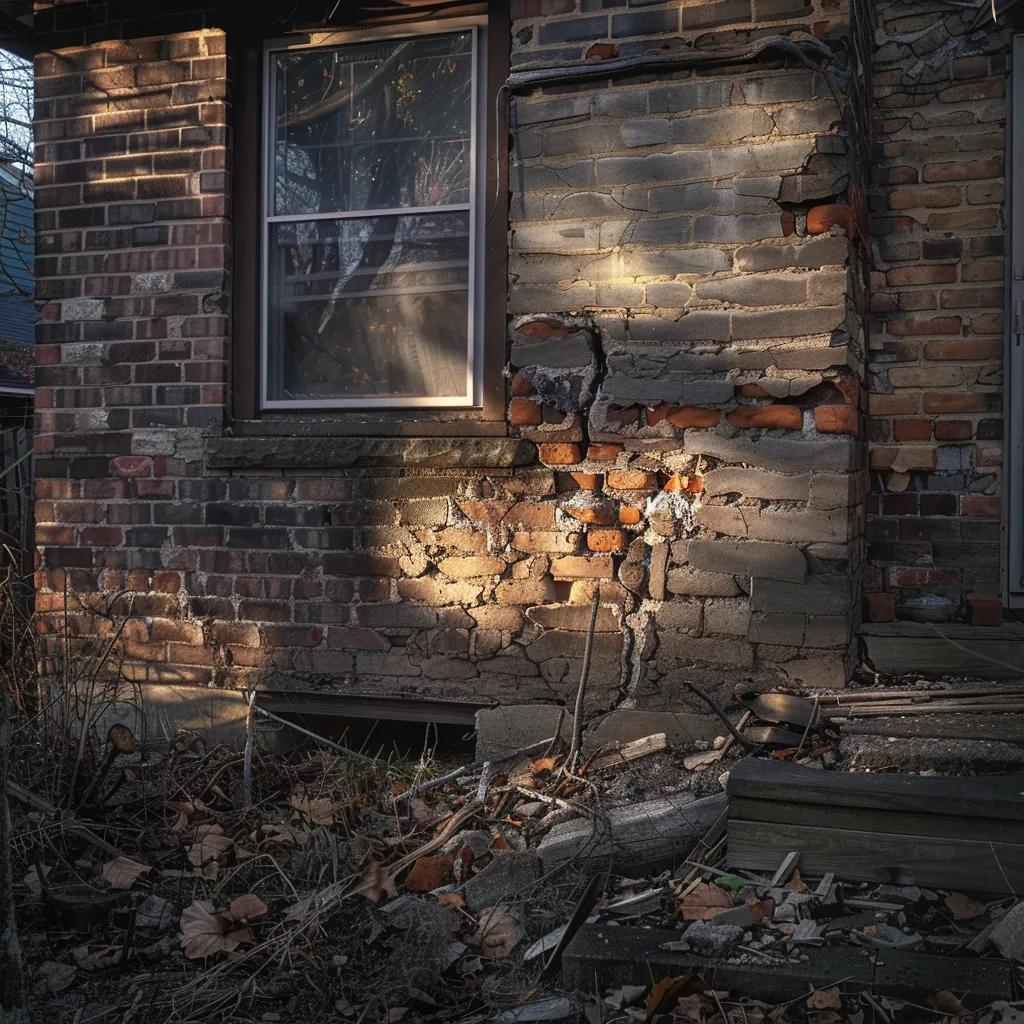Ultimate Guide to FinancingFoundation Repairs in San Antonio: Options and Considerations
Foundationrepair is a challenging home maintenance project for property owners in San Antonio. Cracks in walls, uneven floors, and other foundation problems not only compromise a home’s structural integrity but can lead to escalating repair costs over time. This guide highlights key factors influencing foundationrepair costs in San Antonio and details financing options available for homeowners. It also covers government programs, insurance considerations, and loan alternatives to alleviate the financial burden of repairing failing foundations. Through understanding cost drivers and financing strategies, homeowners can make informed decisions that protect their investment and ensure lasting repairs.
Understanding FoundationRepair Costs in San Antonio
Understanding the costs related to foundation repairs is critical for homeowners facing structural challenges. An accurate assessment of typical price ranges and cost components is the first step toward a realistic repair budget.
Typical Price Ranges for Foundation Work in the San Antonio Area
Foundationrepair costs in San Antonio vary significantly with the severity of issues and foundation type. Minor repairs—such as stabilizing small cracks or sealing drainage channels—can cost between $1,500 and $3,000, while more extensive work like underpinning, slab lifting, or full foundation replacement may range from $10,000 to over $30,000. Local soil conditions, including expansive clay and moisture-related erosion, often drive these costs higher when additional reinforcements are needed. These estimates are based on current market trends in San Antonio considering labor, material quality, and regional price indices.
Factors That Influence the Cost of Foundation Repairs
Several factors affect foundationrepair costs for homeowners. The type of foundation—be it slab, crawl space, or basement—determines labor and material requirements. Expansive clay and adverse soil conditions can cause more significant movement, demanding intensive repair methods. The extent of structural damage, such as uneven settling or water exposure, along with local building codes and permit costs, also influence pricing. Moreover, contractor pricing varies based on reputation, expertise, and local market demand. Thus, thorough inspections and detailed estimates are essential for a realistic budget.
Obtaining Accurate Estimates for Your San Antonio Property
To estimate foundationrepair costs accurately, homeowners should obtain multiple detailed inspections from professional inspectors and foundationrepair experts. Evaluations consider soil composition, moisture levels, and repair history, and the resulting written documentation helps address both immediate needs and long-term maintenance planning. Comparing at least three quotes from reputable companies, ensuring all potential issues (including additional water management solutions) are included, is key for negotiating effectively and understanding the project’s full scope.
Are There Financing Options Available for Foundation Repairs in San Antonio?

Financing is a major concern as homeowners face significant, unexpected expenses for foundation repairs. Fortunately, several financing options have emerged to help cover these costs while easing financial strain.
Exploring in-House Financing From San Antonio Repair Companies
Many local foundationrepair companies now offer in-house financing to help homeowners who may not be able to pay upfront. These financing options come with lower processing fees, simplified approval processes, and flexible repayment schedules compared to traditional banks. Some companies even bundle repair costs into a single extended payment plan, making budgeting easier while addressing essential repairs.
Benefits of Contractor-Offered Payment Plans
Contractor-offered payment plans ease the burden of large upfront payments by spreading the cost over the repair duration. These plans typically feature fixed interest rates, waived application fees, and faster approval times due to an established relationship between the contractor and the homeowner. Incentives such as bundled repair service discounts may also lower overall expenses, enabling timely repairs that help prevent further damage.
Same-as-Cash and Reduced Interest Loan Possibilities
A popular option is the same-as-cash financing plan, which offers a zero-interest period if the balance is paid off within a set timeframe. Alternatively, reduced interest loans are available through select financial institutions and specialized lenders. These plans provide lower rates during promotional periods and are designed to avoid the high costs of short-term financing, thus preserving financial resources for supplementary home investments.
Securing Loans for Your San Antonio Foundation Project
Obtaining a loan for foundation repairs is a critical strategy that lets homeowners manage immediate repair needs without depleting their savings. Several loan types are available, each suited to different financial circumstances and project requirements.
Personal Loans From Banks or Credit Unions
Personal loans, available from both banks and credit unions, are a straightforward financingoption. Typically unsecured, they come with fixed interest rates and predictable payment schedules. Homeowners are advised to compare offers—taking into account both the annual percentage rate (APR) and any associated fees—to find suitable terms. The speed at which these loans are funded can be a key advantage for rapid repair mobilization.
Home Equity Loans or Lines of Credit (HELOCs)
Tapping into home equity is often one of the most cost-effective ways to finance foundation repairs. Home equity loans provide a lump sum for repairs, while a Home Equity Line of Credit (HELOC) offers ongoing access to funds, which is beneficial if additional hidden issues are discovered during repairs. These options usually have lower interest rates because the home serves as collateral; however, homeowners should weigh the risks of collateralization and ensure repayment terms fit their situation.
Qualifying for Home Improvement Loans
Specialized home improvement loans are designed specifically for projects that enhance a home’s structural integrity and market value. Offering fixed or adjustable rates, these loans may also include grants or low-interest components as part of government or community initiatives aimed at preserving older homes. Homeowners must usually submit detailed proposals and professional estimates to qualify. Such loans not only provide necessary funds for immediate repairs but can also boost overall property value.
Credit Score Considerations for Loan Approval
A homeowner’s credit score is crucial for securing favorable loan terms. Lenders use credit scores to assess risk and decide on the loan’s interest rate and amount. Higher credit scores typically attract lower interest rates and more flexible repayment terms. Addressing any discrepancies in credit reports before applying can improve approval chances. Managing credit proactively, along with getting accurate repair estimates, forms a robust foundation for the loan application process.
Investigating Insurance Coverage for Foundation Issues in San Antonio

Insurance coverage can significantly reduce out-of-pocket expenses for foundation repairs. However, policies vary widely in terms of coverage, exclusions, and how they interpret foundation damages.
When Homeowners Insurance Might Cover Foundation Repairs
Homeowners insurance usually covers sudden and accidental events. In certain cases, foundation repairs may be included if the damage results from a covered peril—such as a burst pipe or windstorm. In San Antonio, if foundation damage is abrupt and clearly linked to a specific incident, some policies may offer limited coverage. Homeowners should review policy details and discuss with their insurance agents to understand if these circumstances are covered, which can help reduce repair costs.
Understanding Policy Exclusions for Wear and Tear or Soil Movement
Most homeowners insurance policies exclude gradual damage caused by wear and tear, poor maintenance, or natural soil movement. Issues like soil erosion and gradual settling, often due to expansive clay soils, are typically considered maintenance problems and are not covered. Knowing these exclusions is important for budgeting and may prompt exploration of supplemental insurance options for chronic issues.
The Importance of Reviewing Your Specific Insurance Policy
Each insurance policy contains unique terms that dictate coverage for structural damage, water intrusion, and foundation defects. Homeowners should carefully review their contracts to identify these details. In some cases, endorsements or riders may be added to extend coverage to include foundation repairs. Working closely with an insurance representative helps ensure that the policy meets the homeowner’s needs, particularly in high-risk areas of San Antonio.
Documenting Damage for a Potential Insurance Claim
Proper documentation is key when filing an insurance claim for foundation repairs. Homeowners should record all signs of foundation issues with photographs, structural reports, and written estimates from professionals. Maintaining detailed records of the damage’s date and extent supports the claim by demonstrating that damages were sudden and accidental rather than gradual. Professional assessments and independent inspection reports further reinforce the claim, increasing the likelihood of approval.
Government and Community Assistance Programs in San Antonio
Several government and community programs in San Antonio are designed to help homeowners manage the high costs associated with foundation repairs. These initiatives target vulnerable populations and those with limited financial resources to ensure that critical repairs are not postponed.
City of San Antonio Home Repair Programs
The City of San Antonio offers specialized home repair programs that include financial aid, low-interest loans, and technical assistance to homeowners in need of structural repairs. Aimed at low-to-moderate income families, these programs focus on preventing further deterioration of essential home structures. Homeowners can apply for assistance through local government agencies which assess property conditions and income eligibility.
Eligibility for Deferred Forgivable Loans for Major Repairs
Deferred forgivable loans provide immediate funds for major repairs, including foundation issues, with the possibility of partial or full forgiveness if certain conditions are met—such as ongoing home maintenance or residency requirements. Eligibility typically hinges on income, damage severity, and the home’s overall value. These loans alleviate immediate financial pressures without the long-term commitment typical of traditional loans.
Grant Opportunities for Low-to-Moderate Income Homeowners
Various grants are available for San Antonio homeowners who qualify based on income and property conditions. Funded by local government agencies, non-profits, and community development organizations, these grants do not require repayment and help offset expensive foundation repairs. Although the application process may be rigorous, successful applicants receive significant support to mitigate repair costs. Homeowners are encouraged to monitor local agency announcements for available opportunities.
Exploring Non-Profit and Community Development Financial Resources
Non-profit organizations and community development financial institutions (CDFIs) provide additional support for financingfoundation repairs. Offering lower interest rates and flexible terms than traditional banks, these institutions also provide financial counseling, emergency grants, and low-interest loans tailored for structural repairs. Homeowners can contact local CDFIs to learn about programs that may further reduce repair costs.
Special and Urgent Needs Grants for Historic Structures
Historic homes require special care due to unique construction methods and cultural significance. In San Antonio, specific grants are available to help maintain and repair historic structures. These grants aim to both preserve the architectural heritage and ensure structural safety by funding urgent repairs. Although the application process involves extensive review, these grants can offer substantial financial relief to owners of historic properties.
Making Informed Decisions for FinancingFoundation Repairs in San Antonio

Selecting the best financingoption for foundation repairs requires careful comparison of available offers, consideration of repair urgency, and understanding the trade-offs between various financing terms. Making informed decisions is essential for protecting home value and ensuring sustainable repair outcomes.
Comparing Different Financing Offers and Terms
Homeowners should gather multiple financing options—including personal loans, home equity loans, and contractor-financed plans—and evaluate them based on interest rates, repayment periods, fees, and additional benefits. Obtaining quotes from various sources such as banks, credit unions, and repair companies enables a comprehensive comparison. Evaluating the overall cost over time helps in identifying the financing plan that best fits the homeowner’s financial situation.
The Significance of Addressing Foundation Problems Promptly to Avoid Higher Costs
Timely intervention in foundation repairs minimizes underlying damage and reduces the risk of costly future repairs. Small cracks or minor shifts that go unattended can evolve into major structural problems. Prompt repairs, supported by suitable financing, not only preserve property value but may also lead to better loan terms and improved access to grant options, making early action a cost-effective strategy.
What to Look for in a San Antonio FoundationRepair Company’s Financing Plan
When assessing a foundationrepair company’s financing plan, homeowners should look for clear and transparent repayment schedules, absence of hidden fees, and detailed explanations of how repair costs are determined. Additional features such as warranties or workmanship guarantees offer extra protection, while positive customer testimonials and independent reviews build confidence in the contractor’s reliability. These factors help ensure that the chosen financing plan meets both immediate repair needs and long-term financial goals.
Considering “Fund at Closing” Options When Selling Your Home
For homeowners planning to sell, “fund at closing” options can be an effective way to finance repairs. In this model, repair costs are deducted from the sale proceeds, meaning the buyer assumes responsibility for completing any remaining work. This arrangement can make a property more attractive to buyers by highlighting a well-maintained home while sparing the seller from upfront repair expenses. Real estate professionals can assist in structuring such deals to achieve a win-win outcome that preserves property value and streamlines the sales process.
Final Thoughts
Foundation repairs require immediate technical intervention combined with careful financial planning. Homeowners in San Antonio have multiple financing alternatives and government programs at their disposal to manage these repairs without overwhelming their budgets. By comparing offers from banks, repair companies, and non-profit organizations, and by understanding insurance limitations and credit requirements, property owners can navigate the repair process with confidence. Prompt action and informed decision-making ultimately protect investments while ensuring that necessary repairs are performed cost-effectively.
Frequently Asked Questions
Q: How do I determine if my foundationneeds repair? A: Cracks in walls, uneven floors, and sticking doors are common signs of foundation issues. A professional inspection is essential to assess the extent of damage and recommend timely repairs to prevent further deterioration.
Q: What financingoptions are best for emergency foundationrepairs? A: For emergency repairs, personal loans, in-house contractor financing, or HELOCs offer quick disbursement and flexible repayment schedules. Homeowners should compare interest rates and terms before deciding.
Q: Can my homeownersinsurance cover foundationrepairs in SanAntonio? A: Coverage depends on the policy details. Most policies do not cover gradual damage from wear and tear, but sudden, accidental damage (such as from a burst pipe or windstorm) might be covered. It is important to review your policy and consult your insurance provider.
Q: What does “fund at closing” mean for foundationrepairfinancing? A: “Fund at closing” means that the cost of the required foundation repairs is deducted from the sale proceeds when the property is sold. This allows repairs to be managed without upfront cash, benefiting both seller and buyer.
Q: How can I improve my creditscore before applying for a repairloan? A: Improving your credit score involves paying off outstanding debts, keeping your credit utilization low, and ensuring credit reports are error-free. A higher credit score can lead to better loan terms and lower interest rates.
Q: Are there grants available specifically for foundationrepairs? A: Yes, some government and community programs in San Antonio offer grants and deferred forgivable loans for homeowners with low-to-moderate incomes or those living in historic structures. These programs are designed to reduce the financial burden of repairs.
Q: What role does soiltype play in foundationrepaircosts? A: Soil type significantly influences repair costs. Expansive clay soils, common in San Antonio, can lead to frequent foundation movement and stress, making repairs more complex and expensive. Professional assessments help determine the appropriate repair method to ensure long-term durability.

